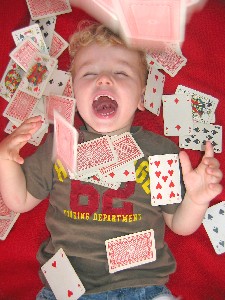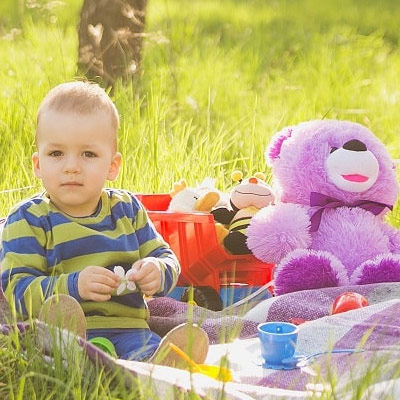 Playing games isn’t just an activity for children; that’s an important message to send to your kids. The best way to do this is to find a game that you genuinely enjoy and can play with your kids.
Playing games isn’t just an activity for children; that’s an important message to send to your kids. The best way to do this is to find a game that you genuinely enjoy and can play with your kids.
My dad loves to play bridge, but it is far too complicated for elementary school-level children. He tried to get us to learn, but it only angered us. We tried to get him to play Candyland, but he always declined. We found middle ground on a Dutch card game called Rikken. It involves trumps and bidding, just like bridge, but has fewer rules and nuances to remember.
It’s great to find games that involve thinking, but not knowledge. Does that make sense? This past summer, I played a game that’s a perfect example: Dixit. In Dixit, on each turn, one player becomes a storyteller and comes up with a sentence that goes along with one of the abstract images on the six cards in his or her hand. The other players turn in one of their cards that best matches the sentence made up by the storyteller. The “storyteller” shuffles and lays the images down on the table, and everyone then votes on which image they think is the storyteller’s. You get points if someone votes for your image, but lose points if you’re the storyteller and everyone picks the right one (yours). You certainly don’t have to be a math whiz to win this game, and you don’t need to be Shakespeare either; you just have to know your audience and play your cards accordingly (sort of like Apples to Apples).
While competition in games can be fun, one of the negative side effects is that there is generally a losing team or person. Sore losers can really ruin the experience (especially if they realize halfway through the game that they are going to lose). Is it worth playing if someone stomps away crying every time? Younger kids often don’t know how to deal with the frustration of a loss and choose to throw a temper tantrum. I was definitely once guilty of this act, but I eventually grew out of it. Set a good example of how to accept a loss once in a while and your children will eventually understand.
On the bright same, playing games as a family also opens up opportunities for teamwork within the family. Many games, such as Sequence or Guesstures, can be played in teams. Switch up the teams to switch up the enemies and allies. First play kids against parents, and then pair up kids with parents.










